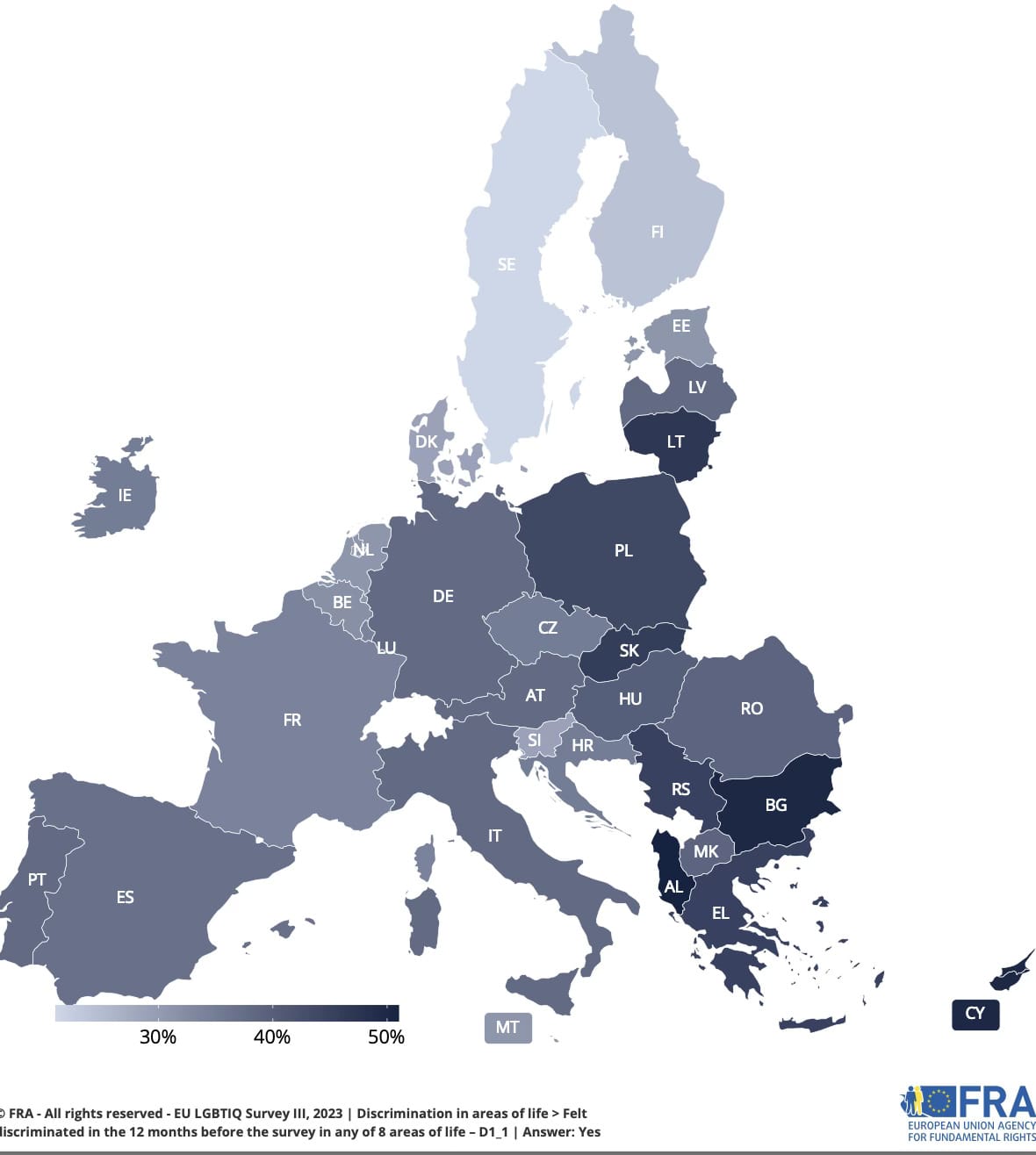A Threat to Teachers Anywhere is a Threat to Teaching Everywhere
Bulgaria's new laws against LGBTQI "propaganda" in schools

Students returned to school in Bulgaria earlier this week. Teachers have returned as well, and this is no ordinary September for them. As in several US states, teachers have become unwitting political targets. Or, we might say, teaching has become a political target.
In August the Bulgarian parliament passed a new law banning LGBTQI “propaganda” in schools. To be precise, it is an amendment to the nation’s education code. And it passed with very little opposition. It was proposed by the Vazrazhdane, or Revival party, a pro-Kremlin party, and supported by MPs from the leading GERB party and Movement for Rights and Freedoms—both nominally “pro Europe” parties. After public protests, the Varna chapter of Revival published the names of teachers who had signed a petition in opposition to the law. And for my two weeks here this month I’ve been having conversations with people in which I hear more and more concern about the chilling effect this is having.

I have also had a few people—people who do not favor the legislation—tell me not to worry. The legislation has no real teeth, or mechanisms for enforcement, they tell me. It may very well be unconstitutional, and while GERB and MRF MPs supported it, they did so because there was no political gain to oppose it, and they may have needed to protect other priorities like blunting opposition to the adoption of the Euro.
Among my top 24 rules: Don’t tell a worrier not to worry. As someone blessed/cursed with a hyperactive worry-brain, I have worked to manage my reactions to being told “don’t worry.” In my personal life, the phrase is a frustration. In professional endeavors, I treat it as a clue—a sign that there may be more to a story than first appears. To help us follow the clues, and to get a bit more context, I’ve turned to jurist and legal analyst Iliana Boycheva. For the past year, Iliana and her colleagues in CSD’s law program—three Marias and a Dimitar—have patiently explained a lot about the legal and political systems here, despite my judging them for their taste in pizza and them judging me for my limited interest in heavy metal).
Notes from New Europe is a reader-supported publication. To receive new posts and support my work, consider becoming a free or paid subscriber.
GG: Iliana, What, in effect, does this legislation restrict? Have you heard or read anything from educators about how they are approaching the return? Have some educators resigned?
Boycheva: It prohibits the promotion and popularization of what is termed "untraditional sexual orientation," and includes a definition of this term. After the proposal proved useful for their electoral purposes, Revival proposed even more restrictive laws, including sanctions-related ones.
As for school-related resignations, I haven't heard of any specific individuals resigning beyond those who gained significant public attention. However, there is an ongoing case at the Commission for Protection from Discrimination related to these changes, though details are scarce. This Commission has a reputation for being less responsive to discrimination based on sexual orientation, sometimes failing to address clear instances of bias.
An interesting development has been the adoption of regulations in three major municipalities (Burgas, Haskovo, and Stara Zagora) that restrict advertising related to non-traditional sexual orientations and self-identification as a sex other than biological. This somehow stayed under the table but it is important. Hopefully, it will reach the Court of Justice of the European Union (CJEU).
GG: I haven’t seen signs of significant opposition from political parties, even the so-called pro-Western parties. Did this surprise you?
Boycheva: GERB's reaction was also very disappointing; one MP criticized Revival for not informing them earlier, which could have allowed GERB to suggest even more amendments. There are rumors that GERB voted in favor as part of a deal with Revival to support their candidate for President of the National Assembly, though this remains unconfirmed. There is a rumour that GERB is planning to adopt/apply the "traditional values" more and more as part of their communication strategy.
In one interview after the adoption of the law Boyko Borissov, leader of GERB, said "if euroatlanticism, madam, is to make me a woman, then I give you the title I am not a Euro-Atlanticist, I will not become one by any means. If that is your question, and I will not do it, nor do I wish my grandchildren to do it. Whatever my honest talk and I answer you honestly. If that is the definition, you may safely write. Borissov is not a Euro-Atlantic but is definitely not and will not be."
Oh, and he mentioned boxing…
GG: Right, boxing. Your colleague from CSD’s Disinformation program, Goran Georgiev, pointed me to the Olympics, and the controversy in women’s boxing. While that drew a lot of attention across the globe, it sounds like it was THE story for a while here. Do you think Revival noted the Bulgarian public’s response and used it as an opportunity to put forward this legislation?
Boycheva: Yes. The timing of the law's introduction seems linked to the Olympics, which sparked various criticisms, including claims of LGBTI propaganda and anti-Christian sentiments. Incidents during the games, such as the controversy involving Imane Khelif and the Bulgarian boxer's gesture with the Taiwanese boxer, for sure have been leveraged for political gain.
GG: What effect does legislation like this have on Bulgaria within the EU and Bulgarian politicians in the European Parliament?
Boycheva: In terms of EU context, Bulgaria is not the first to adopt such laws—Hungary has faced similar issues. This, combined with other vioaltions from Hungary has led to some sanctions from the EU, however, their effectiveness is up for debate. Many EU and Council of Europe institutions have been contacted and have issued statements, though we are still waiting for action from the EU Commission. Given the rise of far-right movements across Europe, I do not anticipate significant political repercussions in the EU Parliament. However, it is crucial for EU parties to be aware of their national members' voting records, especially within the European Peoples Party (EPP), to which GERB belongs.
It's likely that this case will eventually reach the European Court of Human Rights, but this process will take years. For now, many NGOs and stakeholders hope the law will be challenged in the Constitutional Court and found unconstitutional.
GG: What signs of disinformation and misinformation do you see at play?
Boycheva: It's evident that the law is being used to conflate homosexuality with pedophilia, leading to various false claims. This is like the most common mantra - homosexuality=pedophilia. During the parliamentary debates, Kornelia Ninova (BSP) even presented a book for gay women and falsely claimed it was being distributed in schools. The book explains what kinds of lesbian sex there is. The organisation (BILITIS) proved that it was not disseminated in schools and the target group of this book were not children.
Also, I believe there may be a significant misunderstanding regarding the purpose of sex ed. Some people mistakenly think it teaches children how to engage in sexual activity, potentially leading them into harmful situations, when in fact, the aim of sex ed is quite the opposite. Its purpose is to help children understand their boundaries so they can protect themselves and avoid sexual exploitation or violence.
Thanks for reading Notes from New Europe! This post is public so feel free to share it.
Iliana cautioned me to not jump to any conclusions about more sinister issues at play. And others have suggested that it is not so helpful for Americans to criticize on these issues. Indeed, this legislation is clipped from the same playbook of cynicism and illiberalism we see in Russia, Hungary, and parts of the US. And we have to view any strategic thinking here as distractive. Just as Haitian communities in the US have limited political influence, LGBTQI communities in Bulgaria have few legal protections and protected rights. Our broken political discourses now seem to encourage targeting people without a seat at the table.
So I bring this issue to your attention because it is not isolated, and the reluctance of those of us who have the privilege of working in or near the global, English language media to delve into the nuance of such efforts deprives you, dear reader, with the awareness you need to make your own choices in democratic societies.



